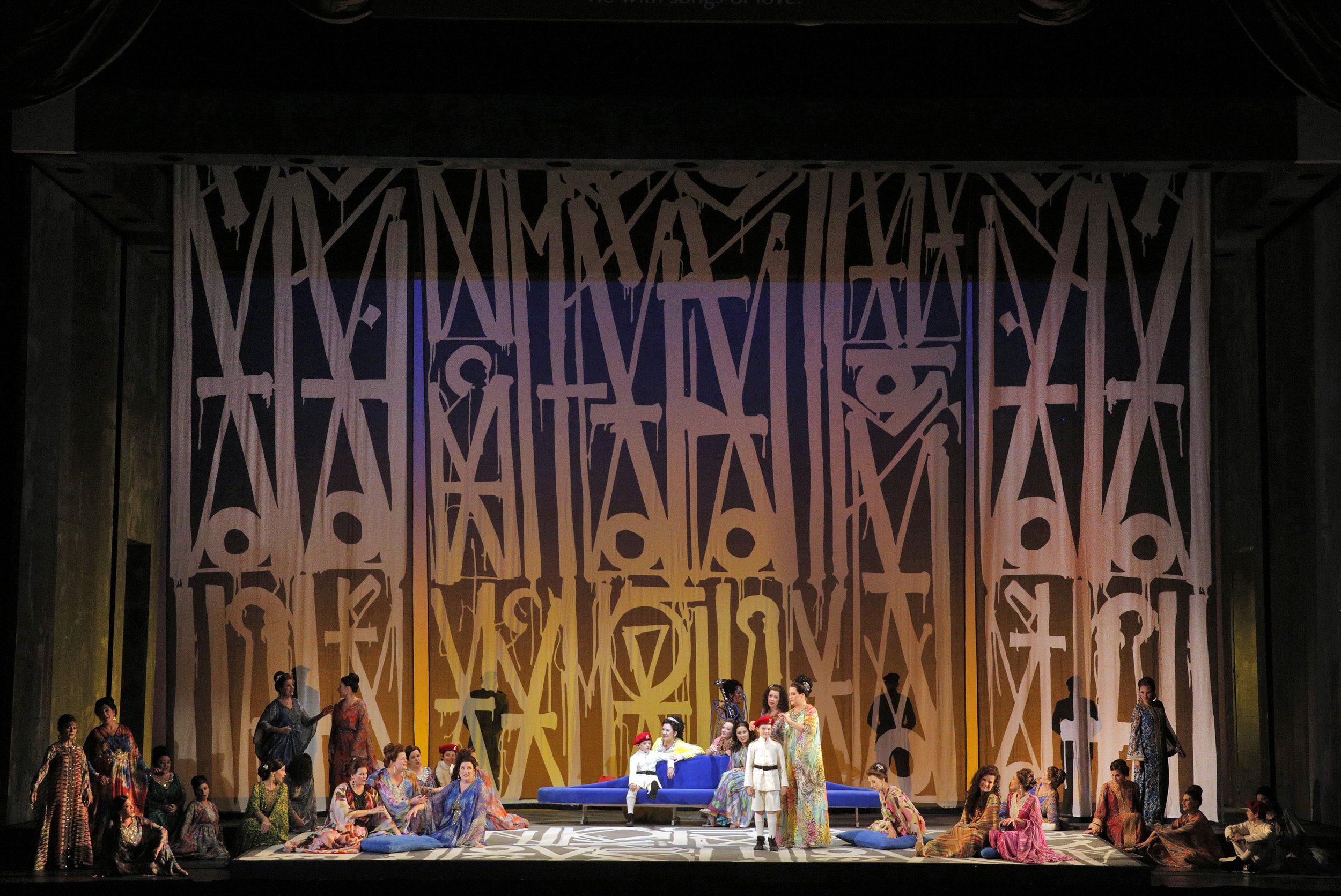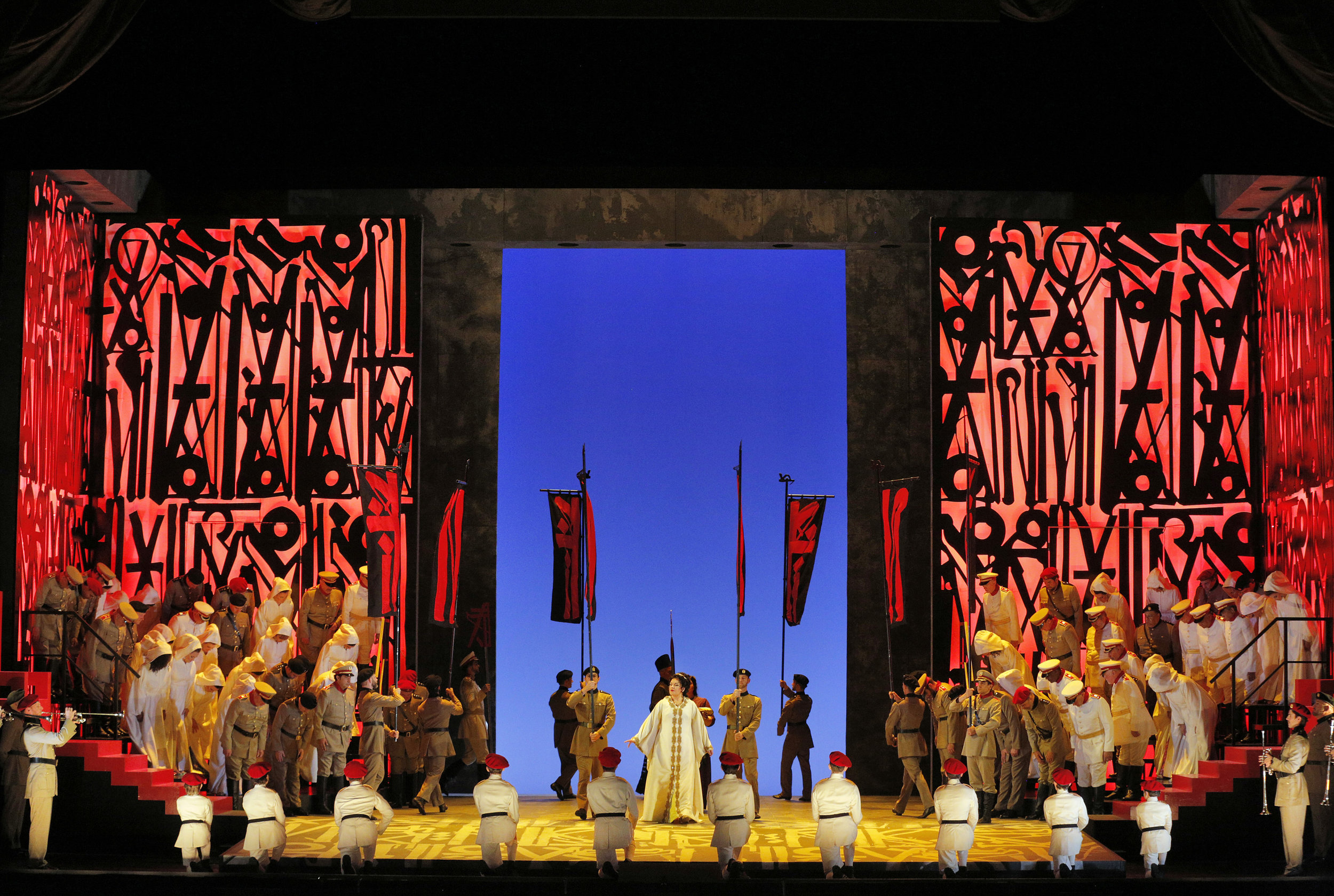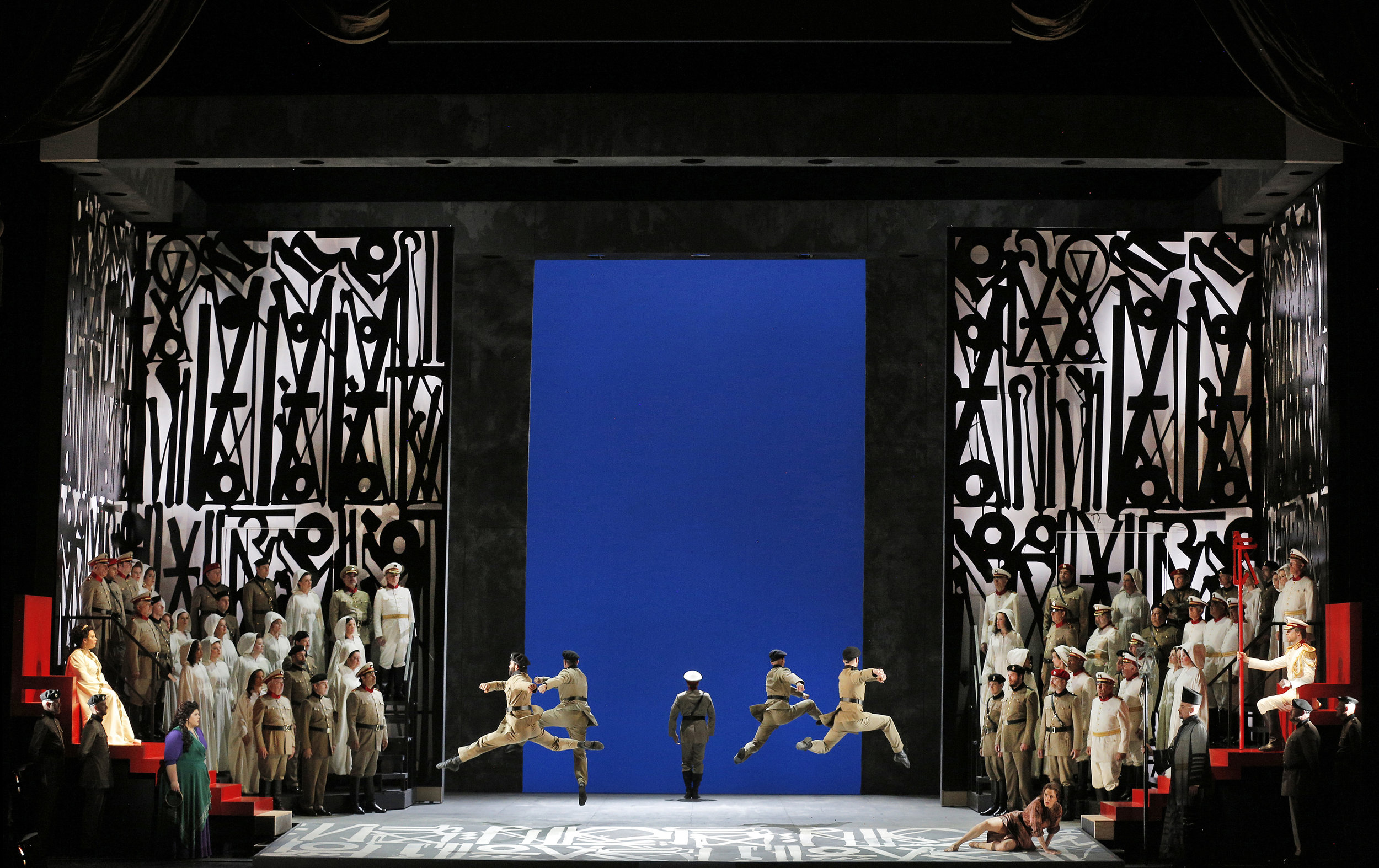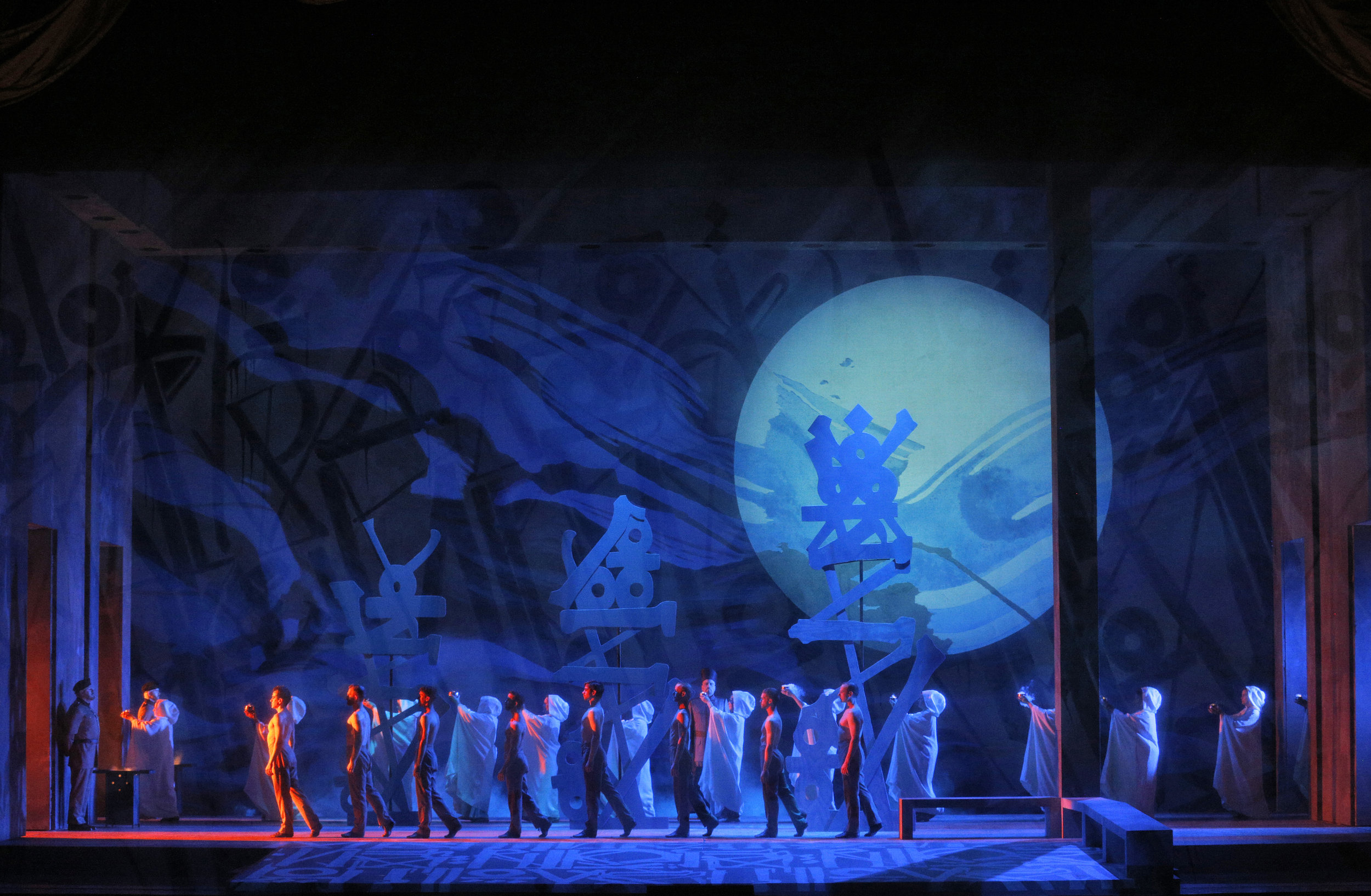A Triumphant Night on the Nile
/By Elsa Tranter
11/13/2016
All Photos by Cory Weaver, courtesy of San Francisco Opera
AIDA
Opera in four acts by
GIUSEPPE VERDI (1813-1901)
Sung in Italian with English titles
| Aida | Leah Crocetto | |
| Amneris | Ekaterina Semenchuk | |
| Radames | Brian Jagde | |
| Amonastro | George Gagnidze | |
| Ramfis | Raymond Aceto | |
| King of Egypt | Anthony Reed | |
| A Priestess | Toni Marie Palmertree | |
| A Messenger | Pene Pati |
Nicola Luisotti, conductor
Ian Robertson, Chorus Director
Francesca Zambello, Director
Performance of Friday, November
11, 2016
War Memorial Opera House, San Francisco
San Francisco’s Opera’s Aida was triumphant tonight from start to finish. Beginning with the six costumed musicians in the lobby trumpeting the audience to their seats and ending with Radames and Aida dying in bliss in their tomb, there was nary a misstep. The chamber opera within the grand opera was very evident; each of the four main characters had conflicting emotions that they struggled to resolve and each of them sang with great passion.
Leah Crocetto’s Aida was very convincing. She doesn’t move much on stage, but when she does it is with purpose and result. And her voice is stunning; when she sings softly it can melt your heart, but she can also belt it out to great effect; the emotion is there at all points in her range (which is considerable). Brian Jagde made a physically compelling Radames as both bellicose warrior and tender lover; his voice is strong and true and very clear. There was plenty of chemistry between them in their body language, and their voices blended beautifully. Ekaterina Semenchuk’s Amneris started out tentatively and seemed a bit out of her league in the early scenes, but by the second half she was in full strong voice, most notably when she was mourning the loss of her love. George Gagnidze’s Amonasro was most effective in his few scenes; he looked and sounded like the king he was portraying; his baritone voice rang out with strength and nobility. Finally, Raymond Aceto’s Ramfis did a fine job, though his role did not call for much range of emotion.





The overall concept of the opera, according to director Francesca Zambello, a favorite of San Francisco opera goers, was to bring it into our time, with modern military and religious men and prisoners rather than slaves. That was successful and added a tone of reality that we don’t often expect in Aida. There were large scenes of intense color in the first half of the evening, complete with gold dust falling from the sky. It took one’s breath away. In that last scene, and in others, the opera chorus was superb, modulating from loud and bombastic to quiet as church mice. The orchestra, led by Music Director Nicolo Luisoti, also played at their very best throughout the evening. His control of their playing and the singing on stage was masterful.
The costumes were most notable in the chorus, from the military uniforms and priestly garbs to the gauzy multi-colored robes of the ladies of the court. The lead women’s costumes were less successful to this reviewer’s eye. There were several dance sequences, which were all performed with great élan, as is usually the case with this company, and the choreography matched the basic concepts of religion and war. The sexual abuse of a female prisoner by the soldiers was portrayed with just the right amount of violence, harsh but not gratuitous.
The set design by the contemporary visual artist RETNA featured recurring hieroglyphics of different types and colors. That might have been distracting or overwhelming, but they were neither. They varied from scene to scene but blended into the background in just the right way. The most jarring aspect of the set was a bright blue couch in opening scenes; it was a relief when it was carried off stage. The final scene in the tomb required a stretch of the imagination because there was no tomb—the singers had too much space—so it didn’t seem possible that they could suffocate. That was a small quibble and perhaps the designer realized that by then we were so caught up in the drama that it didn’t matter. In all respects the opera captured the emotions and drew the audience into its world, and the music was Verdi at his best and most melodic. The performance overall was a triumph. It was an evening to remember (and to repeat – eight performances remain, through December 6.)
Elsa Tranter is a Bostonian who has lived in Berkeley for over 40 years and has been an opera goer for most of those years. She worked as a graduate student adviser at UC Berkeley and still attends Cal Performances regularly. Her favorite composer is Wagner and her favorite opera is Tristan und Isolde.



